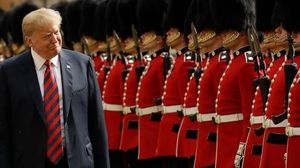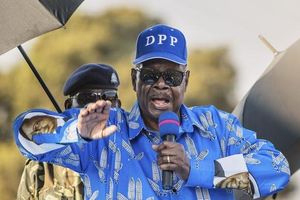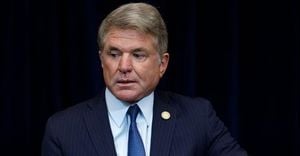Authorities in Mumbai are grappling with the shocking incident involving Bollywood actor Saif Ali Khan, who was attacked at his home last week. The violent episode took place on January 16, 2025, when Khan was stabbed multiple times, igniting discussions around safety and security standards within the city.
Following the incident, the Mumbai Police made swift progress, arresting Mohammad Shariful Islam Shehzad, whom they allege is the key suspect. Shehzad, reportedly a Bangladeshi national, was apprehended on January 19, 2025, from the Thane district after having lived and worked under fraudulent pretenses. According to deputy commissioner Dixit Gedam, preliminary evidence indicates Shehzad arrived six months prior.
The attack reportedly occurred as Khan was confronted by the intruder armed with a wooden object and a long blade after his staff noticed suspicious movement near the bathroom. Eyewitness Eliyama Philip, who was present during the attack, revealed the attacker demanded 10 million rupees (approximately $115,000) before the situation escalated and Khan was injured. The attacker fled the scene shortly after, but not without leaving serious concerns about the safety within Khan's upscale Bandra neighborhood.
Facial recognition technology played a pivotal role in linking Shehzad to the crime. The Mumbai Police conducted tests affirming the results of the CCTV footage captured on the night of the incident. Confirmation came on January 31, 2025, when police officials indicated their investigation substantiated the identification of the suspect as representative of the individual seen entering Khan's residence.
Despite these developments, Shehzad's defense attorney, Sandeep Shikhane, has vehemently denied the allegations. He has raised questions about the authenticity of the claims surrounding Shehzad's Bangladeshi identity, stating, "There is no documentary evidence to suggest he is a Bangladeshi citizen." This assertion has stirred controversy and suggestions of public scapegoat scenarios.
The investigation also raised questions about Shehzad's entry and stay within India. Reports indicate the suspect may have used various aliases and fraudulent documents since crossing the border. A separate police team has been deployed to gather more information, particularly focusing on the circumstances of his arrival and the potential network facilitating his illegal residence.
Khan has since undergone surgery and is on the road to recovery, with the incident sparking discourse around celebrity safety and vulnerabilities. The families of both Khan and Shehzad have also been vocal, expressing their accounts through the media. Shehzad's father alleged, "From what is shown in the CCTV... my son never keeps his hair long. I believe my son is being framed," reflecting the broader apprehensions surrounding the case.
Seeking justice for their son, Shehzad's family intends to approach the Indian High Commission to voice dissent over his detention, emphasizing the need for thorough investigation practices. Meanwhile, Khan's family is taking precautions after the incident to bolster their security, leading to visible changes such as installing grills on the home’s balcony and employing additional security personnel.
On January 28, 2025, the Khan family met with members of the paparazzi, asking them to refrain from photographing their children. This move showcased their desire for privacy amid heightened media attention following the attack. The Bandra magistrate denied the extension of Shehzad’s custody, highlighting insufficient new evidence to warrant additional police detention. Yet, police insist they possess strong technical evidence, emphasizing the CCTV footage, the results of the facial recognition tests, and various other leads they are pursuing.
Despite the progress made, the looming questions of the legality surrounding Shehzad's arrest and the nature of his entry to India remain contentious issues. For now, Mumbai continues to cope with the widespread ramifications stemming from the incident, leading to increased public discourse on crime prevention and celebrity protection mechanisms.
It will be necessary for authorities to navigate these challenges carefully, ensuring safety treatments are not only preventative but also effective, as public trust hinges on the transparency and competence of law enforcement to manage cases of this gravity.



